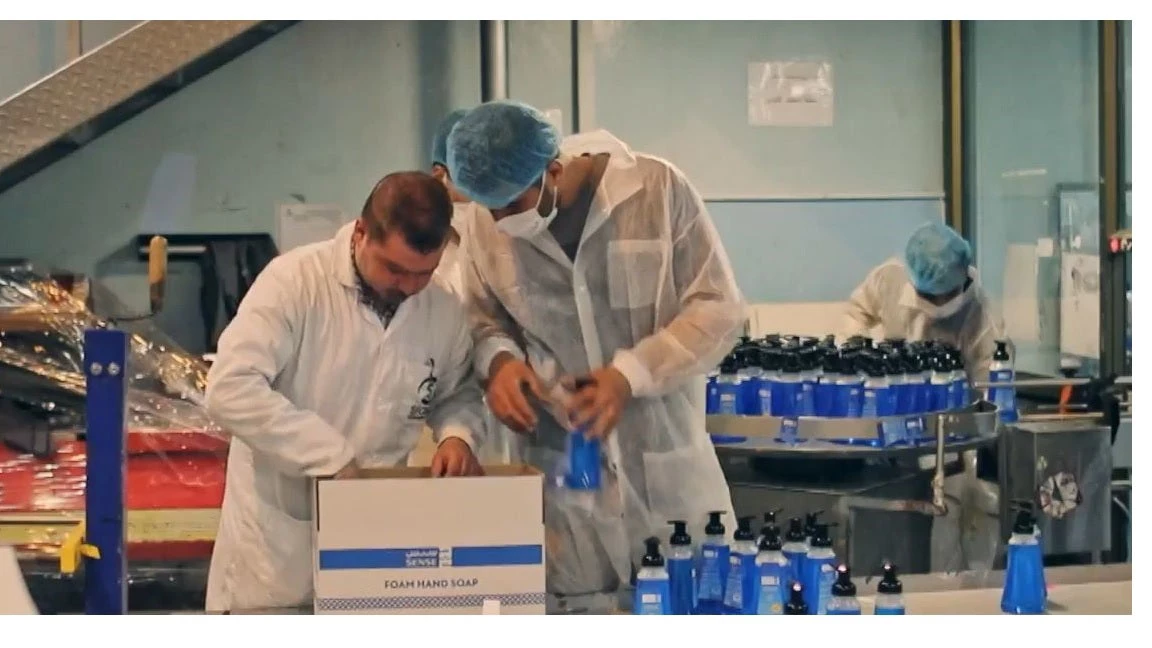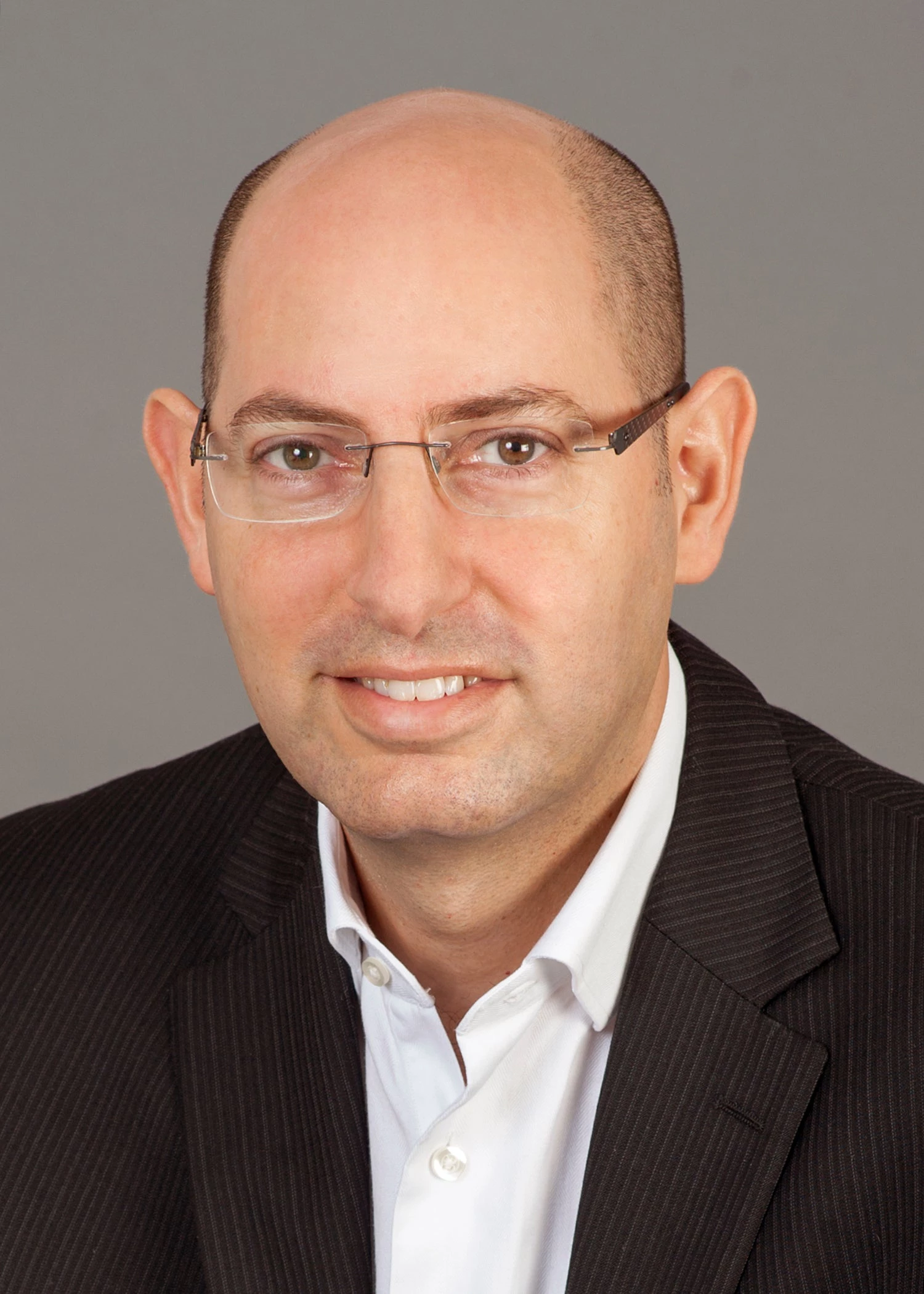 Two men at detergent factory
Two men at detergent factory
Under the 52°C heat in the Markazi refugee camp near Obock in the north of Djibouti, a Yemeni woman serves a client some food she just cooked in her self-built oven. She runs a restaurant under a corrugated metal roof that her husband bought in Djibout-Ville, four hours away. Her customers include another refugee and his son who operate a transport service in the nearby city.
I witnessed these scenes firsthand in my last visit to Obock, but it’s a phenomenon that is common around the world—refugees and other forcibly displaced people in trying conditions who manage to create businesses and jobs for themselves and others around them. That contrasts with the common perception of refugees as burdens on their host communities and as passive recipients of humanitarian aid.
Two new papers from Private Sector for Refugees (PS4R), a World Bank initiative, demonstrate the reality of refugees as entrepreneurs, and refugee-related companies (like those that provide services geared to refugees’ needs or that employ refugees) as investment opportunities. The new research shows that refugees can be positive contributors to market dynamics, especially in environments with fragility, conflict, and violence, where economies are under stress. When the legal environment allows it, refugees can become job creators, employees, customers, and investment targets fueling economic growth and expanding the private sector.
Investing in refugee-related companies
One way to move toward economic inclusion is to invest in refugee-related companies. Our paper, Refugee-Related Investment: Myth or Reality? shows that this type of impact investing is gaining attention. Investors see it as a way to empower refugees, improve host communities' well-being, and drive economic growth, all while making a profit. Many investors still rely on some subsidies which could offset their risks. Blended finance approaches (a mix of subsidies and private capital) are being tested for effectiveness and scalability.
For example, IDA Capital is an investment platform that aims to support refugee and migrant microentrepreneurs in Turkey through venture capital and the WorqCompany platform. The Innovative Startups and SMEs Fund (ISSSF) focuses on creating jobs for youth and scalable economic growth while emphasizing the growth potential of refugee-made products in Jordan. Kiva Capital Management's Refugee Investment Fund (KRIF) mobilizes capital for lending to refugees through a crowdfunding platform. Andean Capital collaborates with a government-subsidized housing program by investing in real estate for low-income Colombian citizens and Venezuelan immigrants. IFC’s Kakuma Kalobeyei Challenge Fund invests in and supports refugee-related businesses in and around a Kenyan refugee camp to bring capital to growing businesses. Several partner organizations to PS4R, like the Refugee Investment Network, work to include a refugee lens to investment funds and vehicles. That said, the business case is still emerging as “bankable” investment opportunities in fragile countries can be difficult for investors to find, with many hurdles to deal with.
Entrepreneurship as a path to sustainable inclusion
Our paper, Advancing Refugee Entrepreneurship: Guidelines for the Private Sector, Governments, and the Development Community, reveals that far from being a burden to communities hosting them, refugees can be successful entrepreneurs, and can introduce new business practices, markets, business networks, and knowledge—and generate jobs.
For instance, Syrian refugees have built the Sigma Detergents manufacturing plant in Jordan and turned it into a thriving exporting business. In Cameroon, Zainabou Abou, a refugee who fled violence in the Central African Republic in 1995, created her own handicraft business and then went on to open a handicraft school, where she has trained and employed over 100 other Cameroonians and refugees so far. A serial entrepreneur, she told me how she also ventured into other businesses such as creating her own supply chain for frozen fish. She now generates employment for others involved in fishing, freezing, cold storing, selling, and distributing fish. Tareq Haddad, CEO of Peace by Chocolate, demonstrates a similar path in his foreword to the study by recounting his personal entrepreneurial journey as a refugee in Canada. He shows that refugee entrepreneurs often start small and then hire other refugees or vulnerable and unemployed locals fostering social inclusion. Such approaches need to be encouraged by inclusive local entrepreneurial ecosystems. Several incubators’ networks, such as SINGA, are dedicated to this agenda by accompanying refugees on their path to entrepreneurship. These ecosystems can enable a quicker rebound in times of crisis. In Poland, between the outbreak of the Ukraine invasion and June 2023, Ukrainians registered a total of 29,400 sole proprietorship businesses. That’s ten percent of all sole proprietorships registered in Poland during that time — demonstrating the enormous contribution to the local economy.
Global refugee crisis calls for deploying new tools
The global refugee crisis is intensifying as 108.4 million people have been forcibly displaced worldwide. Conflict, instability, resource scarcity, and climate shocks are likely to worsen in the coming decades, potentially resulting in up to 216 million forcibly displaced people by 2050. The PS4R studies show governments, the private sector, and development partners that is it possible to move refugees off humanitarian aid and onto self-sufficiency and economic inclusion. Read the papers to learn more, or explore the overall topic of connecting refugees with private sector economic opportunity—and what business, government, and the development community can do to help make it happen — in a new, free online training from PS4R.


Join the Conversation